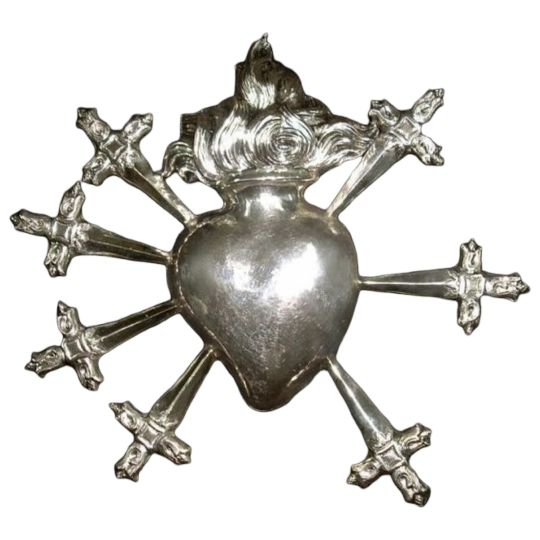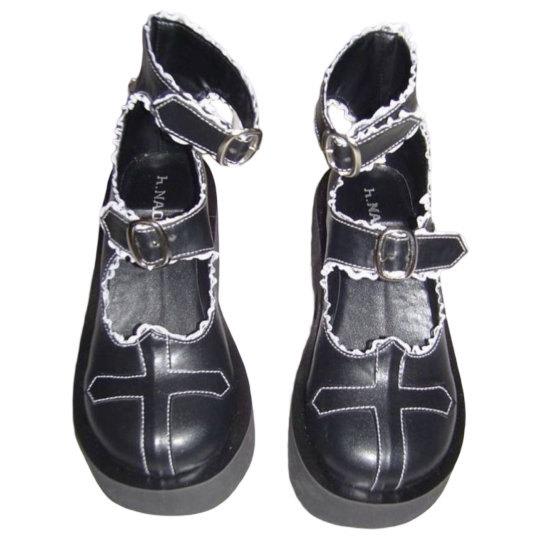#trauma resources
Explore tagged Tumblr posts
Text
SPECIALIST INFORMATION & SOURCES
Working with Children and Adolescents (books listed alphabetically):
Child/Adolescent Treatment Guidelines, LINK .
Dissociation in Traumatized Children and Adolescents: Theory and Clinical Interventions, 2nd Edn, (2015), by Sandra Wieland. Presents compelling case studies that elaborate the variability of dissociation in children and adolescents, and practical insights into five models of dissociation to support understanding and the application of therapeutic guidelines and interventions
Healing the Fractured Child: Diagnosis & Treatment of Youth with Dissociation, (2015), by Frances S Waters. Provides a wealth of information to support understanding, assessment, and creative treatment strategies and interventions for working with children, adolescents and families recovering from traumatic experiences
Nurturing Children: From Trauma to Growth Using Attachment Theory, Psychoanalysis and Neurobiology, (2019), by Graham Music. Distils and clarifies the interactions between mind and body, and the role of attachment as a source of trauma and recovery. Includes authentic reflections from the heart and mind of a highly respected practitioner
The Child Survivor: Healing Developmental Trauma and Dissociation, 2nd Edn, (2022), by Joyanna Silberg. A widely respected, comprehensive, and practical resource for treating children and adolescents with dissociative symptoms. Including information on assessment and treatment, and case examples to illustrate clinical dilemmas, this book has been praised by practitioners and adult survivors
The Simple Guide to Complex Trauma and Dissociation: What It Is and How to Help, (2020), by Betsy de Thierry. Written to complement ‘The Simple Guide to Child Trauma’, this book takes complex theories and clarifies them, to inform and offer practical advice to individuals caring for or working with traumatised children
Treating Children with Dissociative Disorders: Attachment, Trauma, Theory and Practice, (2022), edited by Valerie Sinason and Renee Potgeiter Marks. Filled with practical tools and examples, this book is a vital resource for professionals to enrich their practice with children who dissociate.
#DID#dissociative systems#dissociation#Trauma recovery#Trauma resources#therapy#trauma therapy#cults#cult#cult survivors
15 notes
·
View notes
Note
hey, a little around a year and a half ago, you posted a list of resources for incest survivors.
i came across a link for information about emotional/convert incest, and while I was a victim of physical/overt incest and knew this for a couple years now, it was surprising to find out that other family members might be abusing through emotional incest as well.
i just wanna say thank you for posting that list, as without I might have never found out about this
Ohh, thank you for the nice ask! I'm so glad that my post was able to help you. 💖
I remember when I first learned about covert/emotional incest. It was so relieving to finally have a term for something that impacts my life so deeply. If you want to, I'd also recommend looking into parentification and enmeshment. I think both of these can go hand-and-hand with emotional incest...learning about them was also really helpful for me. I hope it will be for you too?
Please have a great day/night wherever you are!
#sunflower answers#emotional incest#child abuse#resources#trauma support#trauma recovery#trauma resources#incest healing
15 notes
·
View notes
Note
hi!!!!!! I have a quick question! first off, lovely blog! second, is h!tting your kids when its like a joke and all and doesn't leave a mark, bad? cuz my parents (mainly my dad) used to joke h!t me all the time but I never see it in TV shows the closest thing I see is like elbowing someone jokingly and I'm confused. is it bad? im like 14 and still live with my parents, and they suck sometimes cuz I sometimes have to be the emotionally mature one but I don't think their abusive? anyway thxxxxxxx!!! im asking this blog cuz it seems appropriate thank you!!!
-🪻
I’m glad you feel like you have the place to ask!
So, the complicated part of this is that I’m not you, nor am I seeing firsthand your experiences, so I would give you questions to go by because I had to figure out similar situations
Does it hurt and if yes would they stop/seriously consider your feelings if you asked them to?
similar vein—does it feel like a joke? Would they stop/seriously consider your feelings if you asked them to?
does it upset you? Does it feel abusive at all? If this question is hard to answer then that’s fine, again, situations can be complicated
this could be related or it could not, but do other things in your household feel abusive or problematic? (Ex, you said sometimes you have to be the emotionally mature one. Sometimes that’s just people, it happens…sometimes, especially if it’s consistent, it’s a problem)
the biggest thing to consider is intent, regardless of what someone outwardly says. That why the important questions are how do you feel and how would they react to that.
Another note, is sometimes you don’t recognize something as abusive right away. Or on the other hand, if you’ve thought something was abusive and later realized it wasn’t, that’s all fine. It doesn’t make your experiences any less valid
I hope this helps!
1 note
·
View note
Text
original post: february 17, 2024 | last updated: april 4, 2025
new link! the author created their own blog rather than using substack a while back, so please boost this version instead!
we've also received feedback that an abundance of screenshots of white text on the author's originally burgundy background is not reader-friendly. so, we've removed them.
please, continue to share this essay far and wide, and reblog with your thoughts and/or favorite quotes!
7K notes
·
View notes
Text
‘Deer in headlights’ Regressor Flag




a flag for those whose regression is triggered by being in a state of fight or flight , anxiety , hypervigilance , etc . intended for , but is not exclusive to , deer / fawn regressors .
free to use with credit . please do not claim this flag as your own / repost without credit .

#age regression#agere community#sfw agere#sfw interaction only#agere#safe agere#petre flags#agere flags#agere resources#petre#vent regression#trauma regressor#🐇
271 notes
·
View notes
Text

day 6 || this era lasted like 2 minutes but i love it anyway
#daily gi-hun#art post#redhead gi-hun my beloved#i know i barely ever draw him w/ red hair its not on purpose i swear#god this era of gi-hun in general is just so. hes exquisite to me okay#all eras of gi-hun are exquisite jsyk but while we r on the topic of this one#ppl kinda misunderstand this gi-hun lots i think. it was esp bad in 2021 i remember when he turned around before getting on the plane#hes not healed. like. At All.#if im being honest i dont even think this couldve been the START of a healing journey for him#other people have pointed this out before but like. what was he gonna do in america#that guilt would still follow him there. the trauma and ptsd would still be a huge part of his life#and its not like there are readily available resources for dealing with the trauma of going thru a death game#yeah he'd get to be with his daughter but ga-yeong is very perceptive and i think she'd notice the changes within her dads personality#which could even put a different kind of strain on their relationship thats different from the kind that existed before#gi-hun could only rlly distract himself for so long. i feel like even if he did go to america it'd just be a matter of time before he >#> couldnt take it anymore and went back to stop the games OR. something.. Worse.#its just not the kind of person gi-hun is. to forget like people want him to. thats just not him im sorry#there was never a world where he got on that plane and left it behind for good#anyway whatever i dont think we should shame a guy for trying to stop mass murder#yea we can debate all day about the effects his self isolation had on other people but i will NOT back down on him being right for TRYING#(side note: you can acknowledge gi-huns isolation had negative effects on other people [ie his daughter] WITHOUT VICTIM BLAMING HIM)#squid game#seong gihun#seong gi hun#squid game fanart#my art#doodle
222 notes
·
View notes
Text
Parents who Love their Kids Cause PDs too
The belief, that only parents who absolutely despise their kids, can cause said kids to develop a personality disorder, is a dangerous misconception.
This belief majorly stems from the facts, that:
1. People think parents who love their children do everything right & parents who hate their children do everything wrong and
2. People think, trauma can only be caused intentionally & maliciously.
Which is both bullshit btw! Let me tell you why:
1. Parents who "love" (however you define that) their children often tend to think that this love is:
• always visible and obvious to the child => therefore the child never has to question that they're loved
• a sign that everything they do is done in the name of said love => therefore no action/behavior can be wrong/abusive/bad because they didn't mean it maliciously, it was done out of love
• a reason that the child should/will forgive them for any wrongdoings and that the simple existence of this love is enough to make the child happy => therefore the child has no reason to feel unloved, no reason to complain and no reason to cut them off
Many parents do not realize, that they rely on their child automatically knowing of this emotions existence to such a degree, that they fail to verbally communicate it often enough, fail to make their actions show said love and fail to acknowledge that something done out of love, does not equal it being good or non harmful.
To give you a personal example here: My parents love me, absolutely! They'd lay down their life for mine in a heartbeat.
But when I was growing up, their actions did not always reflect that. I went years without hearing the words and whenever I tried to communicate, that I felt unloved, I only got to hear that I was being ridiculous. According to them I had food to eat, a roof over my head and two living parents that didn't beat me, so I should be happy.
They expected me to know that they provided these things for me out of love and that that should be enough to satisfy my emotional needs. It wasn't and it rarely is.
Loving your child is worth shit, if you don't make sure to remind your child of that love frequently. Its worth shit, if you fail to pay attention and fail to show up for this child. Love alone doesn't win you the "greatest parent" award.
Similarly, a lack of love, doesn't immediately mean that you're a horrible parent. You can not feel love for your children and still make decisions that are benefitial for those children. You can not feel love for them and still be a parent that doesn't ever raise their hands against them, which will make you "better" than many loving parents who do raise their hands against their kids. The emotional feelings towards your children do not determine your ability to be a good parent, at least not inherently.
There is nuance, when it comes to children needing to have their emotional needs met and being able to sense whether its genuine or not, but if someone is good at faking emotions, one could make their child feel loved, without ever personally feeling that love (=> arguments can be made about whether or not the child will be able to understand the goodwill behind the faking and will be able to value that the parent did that for their benefit, instead of being sad about there not being emotional love, but thats not the point of this post).
What I am trying to say is this:
• parents who love their children are capable of not meeting their childs emotional needs
• parents who love their children are capable of doing things that end up hurting their children
• parents who love their children are capable of being so caught up in chores, work, relationship problems, etc. that they accidentally neglect their children
• parents who love their children are capable of doing things, that they may see as "good", "character building", "helpful for later", etc. but which will do more damage than good
• parents who love their children are capable of pushing them away by being too controlling, too smothering and too invested
Being a parent isn't easy, but love alone is not the recipe for producing non traumatized well adjusted children. Thats all I wanna tell you right here. Theres always nuance and reasons why things may go wrong, but in the end love doesn't protect against that.
2. Trauma isn't always caused maliciously & intentionally. That much is probably already obvious from the previous paragraphs, but I'll get into it regardless.
If a parent works two jobs, has arguments with their partner at the side, needs to do most of the chores and has two children (one maybe at toddler age, the other a teenager), one (or both) of those children might end up experiencing accidental neglect. Theres only so much a human being can do & devote their time to and while you can set priorities, sometimes you will accidentally neglect a child, because you have no time to do their homework with them, you have no time to go to the park and play with them, you're too tired to listen to them babble on about their interests, you're too distracted to properly congratulate them about their good grades and you're not present enough to realize they're always alone and barely leave their room anymore. Maybe you fail to realize health concerns, conflicts with their friends, arguments between the kids, etc. All the while you're trying your hardest to provide for your children and balance your own life. Accidental neglect is a thing.
If a parent was brought up by an emotionally colder parent or an absent parent or a combination of that, they may have never learned how one properly cares for a childs emotional needs.
They may think they turned out fine, because they have a job, they have a house and a family, everything they're supposed to achieve, so why should they bring you up any differently than they were themselves? Maybe they even saw some youtube videos and facebook posts on how kids these days are all sensitive little things and can't manage their lifes anymore. Maybe the parent makes it their misguided mission to make sure their own kids are resilient and strong, just like they are, so they have a good chance of success and survival.
They don't tell the kids they love them. They don't comfort them when they're sad. They don't hug them. They don't allow big emotional tantrums. They harshly punish bad grades and mistakes, because if the kid is to succeed and survive, the parents needs to help it stay on the path. That parent loves their child and expresses this love in a misguided attempt at helping it succeed in life and be even better off than they were. Accidental/misguided emotional neglect (and abuse if u wanna call it that) is a thing.
I could go on about this for ages! Theres a million different situations in which parents try their hardest and best to give their kids a good life and help them succeed, but still have their children turn out traumatized.
Theres side factors like being marginalized, bullying, a lack of resources, other relatives being unhelpful/abusive, kids & parents being disabled in some way, etc.
All the love a parent holds for their child, cannot save the kid from being traumatized and it cannot save the kid from developing a personality disorder later in life.
If love (the emotion) is to be effective, it needs to be followed up by actions. Meeting a childs emotional/physical/developmental needs isn't done by holding a certain feeling for the child & especially not if you never make sure the child understands how you show & give that love to them.
By now, you might be thinking "Yeah okay sure, I suppose I already knew that much, but why are we talking about it this in the first place?"
Good question and theres multiple answers to it:
• Some parents will still not acknowledge that they have the capacity to hurt their kids. Many of them place more value in being labeled as/feeling like a "good parent" than they do in actually...producing a healthy well adjusted child. They believe themselves immune to causing their child trauma, simply based on "loving the child" and "providing food/shelter" and thats dangerous.
• Many people regularely get invalidated in personality disorder centered spaces, or also trauma spaces in general, if they have contact with their parents/have now build a healthy relationship with them, etc. Even other PDers/trauma survivors have not understood, that being loved by your parents doesn't equal a good childhood and doesn't mean that you can't be traumatized by them to the degree of developing a PD.
• Many professionals do not realize the amount of impact, that emotional neglect can have and often blame the patient for hiding in their room, being too hard on their parents, being sensitive, etc.
• Many PDers/trauma survivors also invalidate themselves because of this! They may think "was it really that bad if my parents loved me?" or "is it even valid/am I allowed to be hurt by it, if my parents didn't mean to do that?". Its challenging to hold space for both: the acknowledgement that they were loved & the pain wasn't caused intentionally, as well as their own valid feelings of having been/still being hurt by it.
• Additionally theres many people who worry that their muted emotions/difficulties developing actual bonds, may cause them to be bad parents, since they cannot love their children in the conventional way. For them it might be important to hear, that actions usually speak louder than the emotions they were motivated by and that loving your child doesn't equal being a good parent, so not loving it doesn't equal being a bad parent.
A few closing notes:
• "love" is used here in the "societal definiton" way, or more the way people seem to use it to mean "unconditional lovey dovey feelings towards one or more people". love, is of course deeply personal and for many already includes the actions one takes to show said love. I use the general idea of it here, since thats often the way parents kinda mean it when they say it (+/- the part of providing the survival essentials of shelter and food or other material things..yk for arguments sake)
• everyone has a different opinion on whether or not children can/should be brought up by people, who can't feel love for them and whether said people can meet the childrens emotional needs. I think that if ppl who do love their kids are sometimes not capable of meeting their childrens emotional needs, having or not having the capacity to love, seems to not be an inherent guarantee to excell or suck at meeting a kids needs. therefore theres no reason to think that every person with an incapacity for emotional love will suck at meeting someones emotional needs. I mean its the same as with empathy, having a lack of that doesn't make you inherently suck at comforting people or being a good friend now, does it? its always individual.
• in the place of every "parent", you can of course put "caregiver" or whichever word fits your situation! its easier to just do the arguments with parents here, but it does of course extend to any person who takes care of a child.
• this is also not meant to be a post, that tells parents they always suck, or tell them that their love is worthless or whatever. you can see it more as a reminder, that love alone isn't enough if its just what you feel for someone. I mean...no romantic or platonic relationship will work well if you just love your partner/friend and pay rent and maybe cook a meal here and there. partners/friends have emotional & physical needs they need met and so do children. an emotion alone doesn't do that and especially not if you assume that its always known how you feel! children are individuals that have & understand different love languages and being a parent doesn't inherently mean you know what your child needs. you gotta actually ask it and interact with it in order to get to know your child and then act on that knowledge.
first posted on my instagram (same @)
#actually aspd#aspd#mental health#mental health education#antisocial personality disorder#aspd awareness#personality disorder#trauma#mental heath awareness#mental health resource#parenting#neglect
209 notes
·
View notes
Text
On Writing Characters with Hyper-Specific Triggers (and a PSA)
*Trigger warning for this whole post
Once upon a time, I had a roommate. Nothing looked wrong from the outside and this narcissist probably thought nothing was wrong on the inside, but there was. I knew moving in with them was a mistake, but financial circumstances demanded I shut up and try to make the most of it. Enter the longest thirteen months of aPTSD-inducing psychological stalemate I hope to never repeat again. Seven of which were on overdrive.
The why doesn’t matter. The how doesn’t matter. What matters is that this roommate was so toxic, there was no point in attempting to talk things out because any little thing could be a land mine for starting an argument and it didn’t matter what casualties got caught in the crossfire, so long as this person “won”. Casualties including our friendship. So if any little thing, anything at all, could be a land mind, what do you do if not try to completely avoid them? For seven months.
This person’s work schedule was incredibly erratic, but they were gone more hours than not, and when they were home, they were usually asleep. In those few overlapping hours where we were both awake, I could not leave my room for fear of said verbal land mines. If I wanted to cook, leave the apartment, get anything from the living room or my desk that I had to abandon, get more water from the fridge, I had to do it before they got home, or after they went to bed, and I could never predict when they’d be home.
Luckily (or unluckily), my room faced the parking lot, and this roommate drove a car that made a very specific sound. From the moment I heard that car from my room, I had about 20 seconds to shut down whatever I was doing in the apartment, retreat to my room, and lock the door. Overreacting? Potentially, I wasn’t in any physical danger, but this was seven months of near complete isolation from any other friends, and the fear of making it worse kept me silent.
So, 20 seconds from the moment I hear the telltale whine of that engine. If I couldn’t hear the car, our front door had a lock that chimes and I had about 7 seconds from the first chime to the door opening to get the fuck out of the way. I lost weight that I couldn’t afford to lose from being unable to cook past a certain time in the evening and staying locked in my room on their days off.
Seven months of only having a door chime and an engine to tell me when it was safe and when I had to run.
—
These chime locks are the new normal and one year removed from that apartment, every time I hear it and I’m already stressed, it’s a trigger.
Every time I’m on the highway and I see a dark grey sedan of that make, that is the most important car on the road until I make sure it’s not their car.
Every time I see a dark grey sedan parked in reverse, as they habitually did, that is the most important car in the parking lot until I make sure it’s not theirs.
Every time I have to drive near a certain location where they work, I am watching for that car.
I could pick it out from 200 others. I know the license plate, I know the license plate frame, I know what sticks to the windshield, I know what hangs from the rearview mirror. I would know that car rusted and crushed in an impound lot.
So. Today I drive home and I pass a rear-parked car one turn before my unit, and I think to myself, “that’s not X’s car, but I noticed it, I’m never not going to notice it.” It wasn’t the same make, model, or color, it was just a sedan with its nose sticking out and that was enough.
Then I turn the corner. And there it is. My ex-roommate’s car.
I shit you not it was like I had a warning from the Universe before it hit.
I don’t need to check the windshield, I know it’s theirs. I’ve seen it in my complex once before. The last time I did, I’d parked my own car and waited, got out, and hid between two others in the dark, waiting for this person to leave.
Today, in broad daylight, that car is empty. They happened to arrive while I was gone for 30 minutes. So I park, and I wait. I watch that car from my side mirror. I scan the sidewalk for them and I don’t see anything. I have frozens that can’t wait.
I’m thinking to myself, of all the parking spots in all the parking lots, of all the apartments in this godforsaken town, you parked right behind my spot.
Nothing happened, and even if we crossed paths, nothing probably would have happened (that’s how they worked, pretending nothing was ever wrong and that I was the crazy one). But I still waited, and when I decided to leave, I moved as fast as possible without drawing attention. One whole year removed from that person.
—
It doesn’t take physical abuse, or yelling and screaming and death threats. It doesn’t need to be a parent or a sibling, a relative, or a romantic partner. This person never touched me, never screamed (though they did yell on occasion), never actually threatened anything. They never called me names, were never direct with any of their insults, were never explicitly petty. I had no proof. Ever.
I just had example after example of every time they cut me down to feel smart, picked on me to feel better about themselves and project their own insecurities and jealousy, or used me as their emotional punching bag because of choices they made.
So a year after completely cutting them out, there’s that fucking car parked outside my apartment.
Media portrays “triggers” usually only in characters who are veterans. Noises that sound like gunshots, or thunder, fireworks, because that’s what we think of when we see PTSD—people who fought in wars.
It’s not like I sit around fixating on that car or that door chime (and actually with exposure to that chime every day with no consequences it’s gotten better), but that’s the point. They come out of nowhere when you least expect it. They don’t prepare you for their arrival, they just happen.
I didn’t have anything close to a panic attack, but nothing in the universe was more important in that moment than making sure I didn’t run into this person, until I calmed down.
Trigger attacks don’t have to be this big flashy thing, born of big flashy movements. It can be something as subdued as going quiet, staring at the thing, and your brain dumping everything else except all the potential outcomes of not escaping this situation immediately. It’s just a car. It’s not like an evil Big Dick truck with smokestacks and truck nuts and a MAGA flag on the back. It’s just a nerdy sedan that could belong to anyone.
—
So. PSA.
What you think might be an overreaction by someone you care about, they probably think is an overreaction, too. Did I want to have fate shit on my day and spend extra minutes under the hot sun when I have chores to do? No. But it happened.
What you think a trigger is supposed to look like or what the symptoms are supposed to be are not just what’s dramatic and flashy for the TV. Here I am writing a whole blog post about it instead of just moving on and I can't go back and check for typos because I don't want to have to reread it.
Do you want to die on a hill of “get over it” when someone you care about would love nothing more? Just. Be there for them.
And to writers, artists, anyone—it doesn’t have to be dramatic to be the most upsetting part of someone’s day. Including such simple things as a door chime, or the sound of an engine, really helps with visibility so people like me don’t think “I’m not allowed to feel this way, I didn’t actually suffer like a shell-shocked veteran”.
Most of us never will. That doesn’t make any of our hardships any less valid. Please be kind.
#writing#writing advice#writing resources#writeblr#writing tips#triggers#trauma#ptsd#writing trauma#long post
475 notes
·
View notes
Note
On the topic of realistic conditioning/deconditioning,
If the trigger is something whumpee wouldn't hear often when they're with caretaker but whumpee still wants to break it because they might hear it elsewhere (like kneel being taken as a command)
Would whumpee ask caretaker to casually trigger them so they have the opportunity to challenge it in their own head and in a safe place? Would this be a good idea for recovery?
And of course being there with the praise everytime whumpee makes just a little bit of progress, or comfort when they don't.
Heads up, anon: your ask was an EXCEPTIONALLY good one, and I ended up writing another mini TED talk (~3-4 min read) in response. Thank you so much for sending it in!
...on Conditioned Whumpees - Part 3
[ Part 1 - Part 2 ]
That is a very, very good idea! You're spot on with all of it, particularly operating in a safe environment where whumpee is ultimately calling the shots. Having that comfort/support readily available will make a huge difference in how well whumpee can tackle the matter. And while the process isn't fun, approaching desensitization with this much intent is much, much more likely to result in success.
I can offer a few pointers that can add another few layers of realism, as well as some other things to think about while tailoring it to your story:
if whumpee is actively working through their conditioning in this way, memories of their trauma will become closer to the surface. As a result, all of their other PTSD symptoms will be elevated during the course of their practice sessions, as well as for at least a few weeks after.
flashbacks are a very common experience during times like this. engaging with triggers like this is going to cause their flashbacks to become more frequent and intense.
during such flashbacks, it is almost a given that whumpee's mind and body will enter a similar state to the one it was in during the time when the flashback was taking place. By that I mean that the fear they felt in that moment, where it was physically located in their body, will echo into their body in the present moment. Same goes for other all other emotions, and sometimes even phantom aches surrounding any injuries they received at the time...
while the emotions tend to be identical to the ones felt during the trauma, in my experience, the pain comes out distorted in a similar way to the way it does in dreams: less intense, and more "blurry" and imprecise in location. When we say that someone having a flashback is "reliving the moment", we mean that their body literally feels as though they're in the same immediate danger that it was in back then.
this is true even though they'll be aware to at least some degree that they're presently with caretaker and safe.
the flashbacks don't always happen immediately after the conditioning trigger is used. Often they flare up hours or days later, sometimes without warning, sometimes as a result of encountering a different flashback trigger. The whumpee's thresholds for what counts as a trigger will drop, which is part of what causes the flashbacks to happen more often. Something they could normally ignore is going to affect them much more while they're like this.
your whumpee is more likely to experience severe mood swings while in this heightened state. Especially feelings like irritability, frustration, anger, loneliness, and grief. This stuff ain't pretty, folks. Even your sweet cinnamon bun is most likely going to lash out at someone as a result.
PTSD episodes are also exhausting. your whumpee is going to feel mentally, physically, and emotionally drained. And, to add insult to injury, being tired amplifies the emotions listed above.
Now all of this said, your whumpee may or may not know that this is to be expected. If they've worked on processing their trauma before this, they'll have figured out that one often leads to the other. They'll go into the deconditioning practice knowing this is coming, and will approach it carefully, but with a fairly level head. Knowing that it'll suck, but they'll come out the other side okay.
If not, they're in for a rather nasty surprise.
For the latter, they will feel at first that the deconditioning practice is making everything worse. They're suddenly struggling the way they did when the trauma was fresher, and it can be tempting to stop and refuse to touch it again because the mental/emotional pain gets so intense.
If they do give up at this stage, it will make trying again far more daunting in the future.
But the trauma being stirred up is actually a sign that it's helping. It means that the whumpee is starting to process what happened to them, which is a fundamental step in being able to heal.
Note: All throughout the process, crying is a very good thing. It lets them physically get rid of a lot of the brain chemicals associated with these surges of emotion. Letting themselves cry over things they couldn't cry about back then can actually help them let go of those feelings in a similar way to if they'd been able to process them in the moment. [Which is the basis for much of EMDR, a specialized tool used in trauma therapy.]
Okay. So now we know what other effects can cascade from the actual deconditioning practice, now we have some things to consider.
First off, what time parameters are whumpee and caretaker working within while deconditioning? There are three basic options:
they sit down together and practice repeatedly using the trigger for [X amount of time; usually <45m at once] back to back. Once that time is up, caretaker will no longer use the trigger at all, the excercise will end, and they'll get up to do something else.
whumpee sets a specific window of time [X number of hours] within which caretaker will use the trigger word at random points. Once that time has elapsed, the exercise is over.
over the course of days, caretaker uses the trigger word at random points without giving warning. the excercise only stops after being ended by whumpee.
Now why is that important? Because of something called hypervigilance. It is another symptom of PTSD which, to put it into the simplest words, is whumpee waiting for the other shoe to drop. It's a heightened state of tension and wariness in which whumpee is expecting that something bad is going to happen, and is constantly searching for any sign to indicate when it's coming.
It is beyond exhausting.
Imagine knowing that someone is about to slap you as hard as they can, and you have to sit there with your eyes closed, waiting for it. The breath-holding, the flinchiness, the rigid tension in your body as you strain to listen for when they're coming.
Only now, stretch that moment out into hours. Days. Weeks. That is hypervigilance.
A hypervigilant whumpee is not going to be able to relax. Or rest. Or decompress. Or readily trust much of anything around them. They're MUCH more likely to flinch at sudden movements/sounds. They might start biting their nails or showing other signs of nervousness and distress.
These methods above have a gradually increasing chance of setting off whumpee's hypervigilance. If they know exactly when the next trigger is coming, as in example 1, then their 'waiting for it' tension will be low. But the more uncertain they become of exactly when it's going to happen, as in examples 2 & 3, the worse the hypervigilance is going to get.
The trade off is that the later examples are more effective in desensitizing them toward the trigger. The more their practice mimics encountering an unexpected trigger in day-to-day life, the easier it will be to fall back on that desensitization when the time comes.
Therefore, it would be a very good idea for a whumpee who's new to this to start with number 1, then gradually progress to 2 & 3 as time goes on. They should be the one to decide when the next step is made, and if/when they need to dial it back.
Other questions to ask yourself while plotting:
how mentally prepared is whumpee for worsening symptoms? what about caretaker? did either of them know it was coming?
how much of this heightened PTSD stress can your whumpee take before it becomes too much? how do they react when they do hit that tipping point?
if caretaker feels that whumpee is getting too distressed during practice even though they're not tapping out, would they call it off themself? Or would they ultimately leave that decision to whumpee?
based on the answer, how would whumpee feel about caretaker's decision? Relieved? Belittled? Betrayed?
does whumpee have any grounding tools they can use while practicing?
how does caretaker handle the mood swings and instability that come with whumpee's heightened PTSD? You should consider both their internal and external reactions on the matter.
how does whumpee prefer to decompress after a practice session? what things would help them calm down and recover?
how long do they need (hours or days) before the next attempt?
Even with all I've just written, there's far more to the resulting hightened state of PTSD than flashbacks and hypervigilance. PTSD symptoms that they're most likely to encounter in the background while doing deconditioning practice include:
Flinchiness, anxiety, panic attacks, nightmares, exhaustion, emotional mood swings, outbursts, crying spells, depression, executive dysfunction, dissociation, numbness, racing thoughts, freeze responses, tremors, inappetence, muscle tension, and heart palpitations.
Yes, usually many of them at once, even those that contradict. Your whumpee is going to have a LOT going on at once, and it is not going to be a fun time. I recommend looking up any of the above symptoms you don't recognize, and looking for whump inspiration in what you learn.
(Because everyone experiences PTSD episodes differently, there's a lot of wiggle room in which ones whumpee will encounter. Don't feel pressured to use all of them, find what you want to write and have fun with it!)
Thanks again for the incredible ask, anon. And again, I want to congratulate you on how spot-on your original ask was. You nailed it. I know this was a lot more than you asked for, but I hope this provides helpful context for your whump! My inbox will always be open if you think of anything more <3
#conditioned whumpee#pet whump#whump#bbu whump#box boy universe#caretaker#whump inspo#whump inspiration#rescued whumpee#whump recovery#whump resource#whump advice#writing advice#writing reference#PTSD in whump#trauma recovery#whumpee#whumpblr#whump prompt#ask Wick
342 notes
·
View notes
Text
ear’s guide to writing stab wounds
disclaimer!!!: this isn’t to be used as actual medical advice there isn’t enough information at hand to properly treat someone, this is just for writing.
hemostatic (blood clotting) control is the number one priority. minor bleeding can be controlled with direct pressure to the wound. moderate bleeding may require a compression bandage as well as direct pressure. severe penetrating wounds or a nicked artery means wound packing will be necessary as well as direct pressure.
types of stab wounds:
- blunt stab wound means whatever object caused the trauma wasn’t sharp or wasn’t moving fast enough so the skin tears.
- penetrating stab wounds go deep into the skin and into the muscle.
- superficial stab wounds don’t go too far under the skin and look worse than they actually are.
steps to treatment:
1. if the object is still inside the person’s body do not remove it unless it’s to the groin, neck, or axillae (armpit) and the bleeding is hard to control.
2. remove person’s clothes to check for any other wounds and keep the area clear.
3. keep an eye on blood pressure and airway.
4. the wound type and location changes how the rest of treatment will follow.
location:
head: direct pressure is mainstay. head wounds also bleed more than any other part of the body. has the highest mortality rate.
face: severe wounds to the face means the patient has to be seated forward to keep blood out of the airway.
neck: direct pressure is mainstay. if the airway can be secured and is absolutely necessary, wound packing can be applied.
arms: depending on the severity, any of the three treatments can be used.
legs: depending on the severity, any of the three treatments can be used.
abdomen: damage to organs is highly likely. direct pressure should be applied first while surveying if the object was long enough to damage an organ. if so, wound packing may be necessary.
chest: if the wound is deep enough it can cause open pneumothorax (‘sucking’ chest wound) a seal needs to be placed over the wound to keep air from getting inside. if this isn’t done in time the affected lung will collapse.
back: can typically be treated with only direct pressure. wound packing is rarely necessary.
neck, chest, abdomen, and pelvis wounds should never be packed unless absolutely necessary.
treatment types:
direct pressure: key to any wound. can be done with whatever is available even if that means the medic needs to use their own body weight.
tourniquets: applied to the limbs. typically not applied for more than thirty minutes. in some cases, they can be left on for hours, keeping the phrase “life over limb” in mind. complications with tourniquets like nerve damage or ischemia (no blood circulation) are rare. don’t apply over a joint and apply above the wound.
wound packing: done with standard gauze and or hemostatic dressing
wound packing steps:
1. control the bleeding with pressure. use anything available even if it means t shirts or a knee.
2. place a gloved finger inside the wound too apply initial pressure. this will hurt like a bitch. also gives you an idea of what direction the blood is coming from so gauze can be used more accurately.
3. begin packing the wound with gauze. keep pressure on the wound with finger while wrapping gauze around another finger and pushing it in the wound.
4. keep packing the wound until no more gauze can fit in, and then keep direct pressure on for at least three minutes.
5. after the three minutes, use something like a bandage wrap to keep the gauze secure inside the wound.
6. splinting the area to keep it immobilized may be vital to keep the hemorrhage from restarting
7. if bleeding continues medic has to decide if they need to take out gauze and reapply with new gauze or apply more direct pressure. this is usually done by how long it takes to get to further treatment. the longer the wait the more of an incentive it becomes to repack the wound. if it’s just down the road then apply pressure.
most likely complications:
hypoxia, shock, and hypothermia are complications that need to be watched for and treated immediately if they occur.
hypoxia:
occurs when a region of the body doesn’t have enough oxygen in the tissue. can lead to organ damage, brain and heart damage being the most dangerous.
symptoms include: tachycardia (rapid heart rate), difficulty breathing, confusion, shortness of breath, anxiety, headache, and restlessness.
severe symptoms include: bradycardia (slow heart rate), extreme restlessness, and cyanosis (blue or purple tint to skin).
treatment: oxygen
shock:
life threatening condition where the body doesn’t have enough blood volume to circulate through itself. if it goes on for long enough, organ damage and death may occur.
symptoms: rapid, slow, or absent pulse, heart palpitations, rapid shallow breathing, lightheadedness, cold clammy skin, dilated pupils, chest pain, nausea, unfocused eyes, confusion, anxiety, and loss of consciousness.
treatment: if they’re not breathing, cpr is required. if they are breathing, lay on back and raise feet a foot off the ground to keep blood in the vital organs.
blood transfusion and fluids once in a hospital setting.
hypothermia: occurs when the body is losing heat quicker than it can produce. the more blood that’s lost the more likely hypothermia is to occur.
symptoms: differ based on severity
hypothermia:
in mild hypothermia: shivering, exhaustion, clumsiness, sleepiness, weak pulse, tachycardia (rapid heart rate), tachypnea (rapid breathing), pale skin, confusion, and trouble speaking.
in moderate hypothermia: bradycardia (slow heart rate), bradypnea (slow breathing), slurred speech, decline in mental function, shivering slows down, hallucinations, cyanosis (blue or purple tint to skin), muscle stiffness, dilated pupils, irregular heart rate, hypotension (decreased blood pressure), and loss of consciousness.
in severe hypothermia: shivering stops, hypotension (low blood pressure), absence of reflexes, compete muscle stiffness, fluid builds up in lungs, loss of voluntary motion, cardiac arrest (heart stops beating), coma, and death.
treatment: covering with a blanket, hat, and jacket, adding external heat like a hot pack, and if severe and in a hospital setting, warm fluids via iv, warm oxygen, and or a machine to warm the blood in the body.
if you have any questions feel free to ask! i plan on making a guide to gunshot wounds and a more in depth guide to hypothermia later.
#tips for writers#writing advice#helping writers#writing resources#resources for writers#writing tips#writing help#creative writing#trauma writing guide#medical writing tips#writing guide#medical writing guide#stab wound#call of duty#cod#call of duty modern warfare#ear’s guide to writing
970 notes
·
View notes
Text









dark religious aesthetic pngs request! 𖹭
send requests .ᐟ.ᐟ જ⁀➴ ✉
#p⋆˙⟡♡#pngs#png sets#png requests#png resources#transparent#transparent pngs#religious imagery#religious trauma#religious aesthetic#catholic guilt#religious gothic#catholic aesthetic#catholiscism#gloomy coquette#goth aesthetic#goth goth#trad goth#girlblogging#girlcore#girl coded#dark religious aesthetic#catholic core#tw religious themes#goth#christianity#christian aesthetic#christian gothic#dark catholic#angelcore
74 notes
·
View notes
Text



⠀ㅤ ♱ㅤ♱ mi iglesia no ofrece ningún perdón。



⠀ㅤ ⠀ㅤ ⠀ㅤ ㅤ -ˏ͛⑅ ‧̥̥͙‧̥̥ ̥ ̮ ̥ ⊹ ‧̫‧ ⊹ ̥ ̮ ̥ ‧̥̥‧̥̥͙ ⑅ˏ͛-
⠀ㅤ ⠀ㅤ ⠀ㅤ ⠀ㅤ 人形のニンフ。.⋅ ۵♡۵ ⋅.


#aobacafeᅠ❤︎ ◌ ⊹#⠀ㅤ ⠀ㅤ ⠀ㅤ ⠀ㅤ ⠀ㅤ ⠀ㅤ ⠀ㅤ ⠀ㅤ ⠀ㅤ ⠀ㅤ ⠀ㅤ ⠀ㅤ ⠀ㅤ ⠀ㅤ ⠀ㅤ ⠀ㅤ ⠀ㅤ ⠀ㅤ ⠀ㅤ ⠀ㅤ ⠀ㅤ ⠀ㅤ ⠀ㅤ ⠀ㅤ ⠀ㅤ ⠀ㅤ ⠀ㅤ ⠀ㅤ ⠀ㅤ ⠀ㅤ ⠀ㅤ#kpop moodboard#kpop layouts#kpop bios#kpop icons#ig bios#moodboard#messy bios#kpop roleplay#kpop gg#minju illit#minju moodboard#minju icons#illit minju#illit moodboard#illit icons#angelcore#coquette dollete#lambie doll#dollcore#dollette#religious trauma#religious imagery#cute symbols#tw bios#short bios#twitter bios#rp resources#cute girl
100 notes
·
View notes
Text
A common element in conspiracy thinking is believing you can find the truth by filtering out the elements of any given conspiracy myth that you don't agree or vibe with and replace them with things that fit your own worldview.
An example of this are New Agers with progressive-leaning values who believe in stuff like reptilian aliens while discarding queerphobic conspiracy theories about homosexuality and transgender being part of the reptilian agenda. They decide that this anti-queer stuff is coming from disinfo agents or from people who just haven't raised their vibrational frequencies high enough.
It doesn't really cross their minds to ask themselves whether there's any actual evidence for the existence of reptilian aliens that holds up under critical examination, nor to deeply investigate the origins of the alien mythology they believe in. They just think that they can project whatever they want to believe onto it, and they're good.
Now don't get me wrong, it is good that they support trans and gay rights, and that they look at these queerphobic narratives and go, "hmm, that's not right." That is very good, and I am glad that they are out there pushing back against these hateful narratives. Just because someone isn't doing the work perfectly, doesn't mean it's nothing.
But the problem here is, the mythology itself was constructed by the kind of hateful people these folks claim to oppose. Today's reptilian alien mythology was put together by David Icke, combining ideas from Zechariah Sitchin, Alexander Hislop, and centuries' worth of antisemitic conspiracy theories. (Icke essentially said in The Biggest Secret that The Protocols of the Learned Elders of Zion are basically true if you swap out Jews for reptilians!)
Now of course, the nature of knowledge and discovery is that people who are on the right track can still be wrong about some things. But we don't just decide what they're right about and they're wrong about by picking out the bits that resonate with us or align with our politics and discarding the rest. We do it by demanding and conducting better research.
So just how do you conduct effective research? Well, for one thing you develop better information literacy. Here's a resource for that.
You develop your critical thinking skills. Here's a guide.
You learn to recognize unethical manipulation techniques.
You familiarize yourself with the characteristics of pseudoscience and the characteristics of conspiracy thinking.
You also familiarize yourself with how the scientific method works.
You can also look up any number of basic "how to research" guides. Here's one.
The kind of pick-and-choose behavior I talked about is what a lot of proponents of alter programming conspiracy theories do. They think that if they just filter out the stuff about the Illuminati and ancient satanic cults, then they've got the reality of the situation all figured out. It doesn't cross their minds that the fact that their favorite authors are quoting people who were found to be unethical or were outright conspiracy theorists should be sufficient to call the entire thing into question.
You don't get closer to the truth by picking and choosing what you want to believe.
You get closer to the truth through actual research and science, and accepting what the evidence suggests even when it doesn't validate your preconceptions.
#science#critical thinking#conspiracy theorists#conspiracy theories#conspiracism#alter programming#project monarch#monarch programming#monarch mind control#mind control#ramcoa#ritual abuse#ra#ora#organized abuse#trauma based mind control#tbmc#intentional torture based control#itbc#resources
77 notes
·
View notes
Text
ED Regressor Flag



𐂯 a flag for regressors who suffer with eating disorder ( s ) / whose regression is impacted by disordered eating .

free to use with credit . please do not claim this flag as your own / repost . ! despite the nature of this flag , i ask that pro - ed & ed centric blogs do not interact .

#age regression#agere blog#agere community#sfw agere#sfw interaction only#age regressor#agere#safe agere#agere flags#vent regression#vent regressor#agere resources#trauma regressor#🐇
127 notes
·
View notes
Text
*Pssst* Here’s Some Free Books for Coping with OCD
Everyone say thank you internet archive
Living with severe OCD
Taking control of OCD : inspirational stories of hope and recovery
OCD : a guide for the newly diagnosed
Overcoming compulsive checking : free your mind from OCD
Anxiety, worry, OCD and panic attacks : the definitive recovery approach
Obsessive compulsive disorder : practical, tried-and-tested strategies to overcome OCD
Getting over OCD : a 10-step workbook for taking back your life
The OCD workbook : your guide to breaking free from obsessive-compulsive disorder
Daring to challenge OCD : overcome your fear of treatment & take control
Coping with obsessive compulsive disorder
Coping with obsessive-compulsive disorder : a step-by-step guide using the latest CBT techniques
Obsessive-compulsive disorder : core interventions in the treatment of obsessive-compulsive disorder and body dysmorphic disorder
Obsessive-compulsive disorder : a guide for people with obsessive-compulsive disorder and their families
Obsessive-compulsive disorder : the facts
Obsessional thoughts & behaviour : help for obsessive-compulsive disorder
Overcoming obsessive thoughts : how to gain control of your OCD
Overcoming obsessive compulsive disorder : a self-help guide using cognitive behavioral techniques
The dutiful worrier : how to stop compulsive worry without feeling guilty
#mental health#positivity#self care#mental illness#self help#recovery#ocd#actually obsessive#obsessive compulsive disorder#obsessive thinking#actually ocd#moral ocd#ocd awareness#ocd things#anxeity#social anxiety#agoraphobia#actuallyocd#childhood trauma#trauma#self improvement#motivation#therapy#psychology#neurodivergent#neurodiversity#autism#autistic#mentally unstable#resources
61 notes
·
View notes
Text



🪓 — FiNAL "GiRL" REG by @muzzlkid
DEFiNiTiON : A flag for regressors who are final "girls" (of any gender) or final "girls" who regress. One might be a final "girl" due to psychosis, kinning, or sourcing, but they may also simply resonate with or find comfort/enjoyment in the final girl archetype. Perhaps one regresses due to being a final "girl" and the trauma surrounding that identity although that does not have to be the case. Maybe the regressor simply enjoys horror and other not "childhood friendly" media while regress or uses it to aid in regression in some way. For those whose regression is messy, bloody, and scarred, whose regression is a sign of resilience and strength after surviving a traumatic situation. One may not be a final "girl" in the traditional horror movie sense (although they certainly can be), but may consider themself a final "girl" due to surviving abuse, sa, or any other kind of trauma.
F2U ? : I'd like to keep this flag exclusive to trauma/vent regressors but other than that yes. With credits. Do not repost, use without credits, or claim as your own. Feel free to tag me with creations ^_^.
#🧨⠀ ⠀ ⠀ THE ⠀ MUZZLKiD 'S#🧨⠀ ⠀ ⠀ MARKiNG ⠀ HiS ⠀ TERRiTORY#🧨⠀ ⠀ ⠀ TATTOOED ⠀ HOUND#⠀ ⠀ ⠀ ⠀ ⠀ ⠀ ⠀ ⠀ ⠀ ⠀ ⠀ ⠀ ⠀ ⠀ ⠀ ⠀ ⠀ ⠀ ⠀ ⠀ ⠀ ⠀ ⠀ ⠀ ⠀ ⠀ ⠀ ⠀ ⠀ ⠀#agere flags#non traditional agere#noncom agere#age regression#flag coining#trauma agere#horror agere#agere resources#agere#sfw agere
65 notes
·
View notes